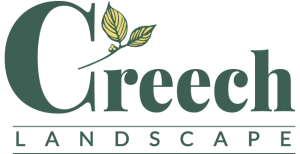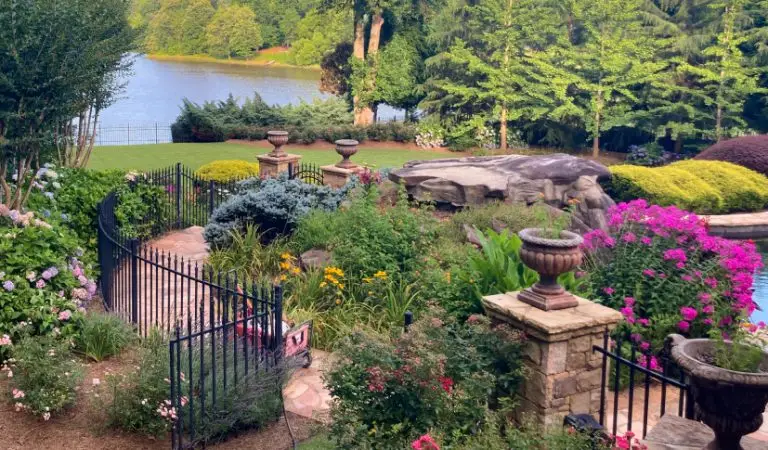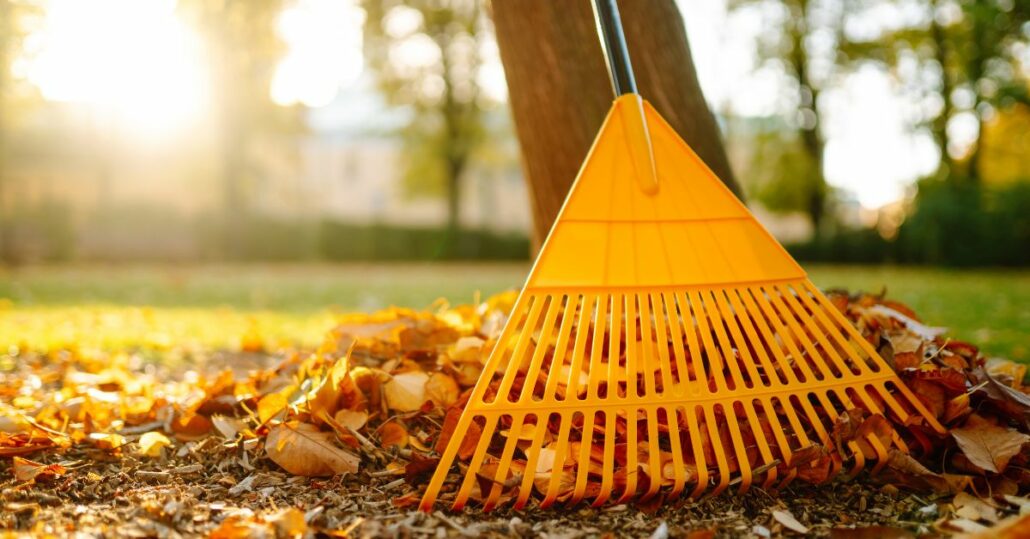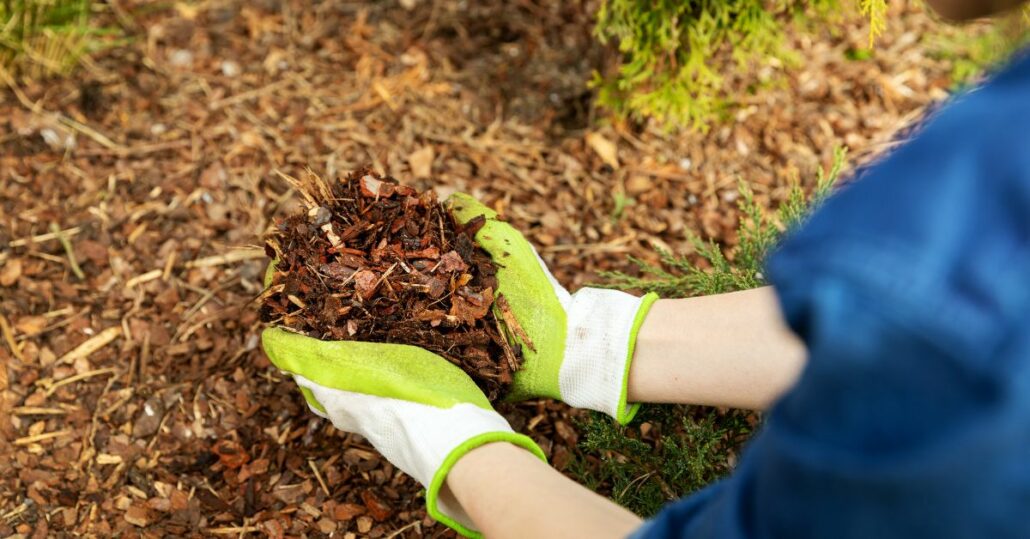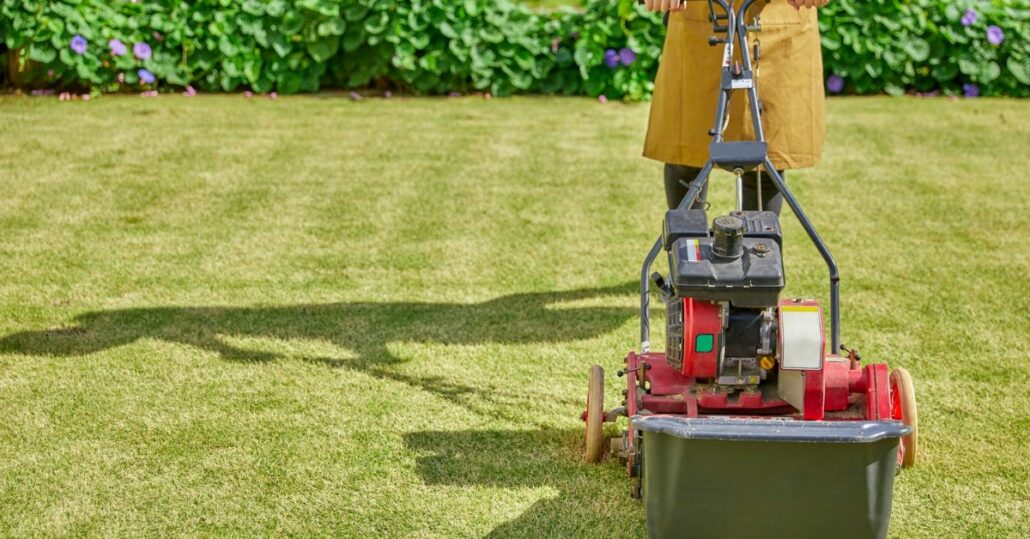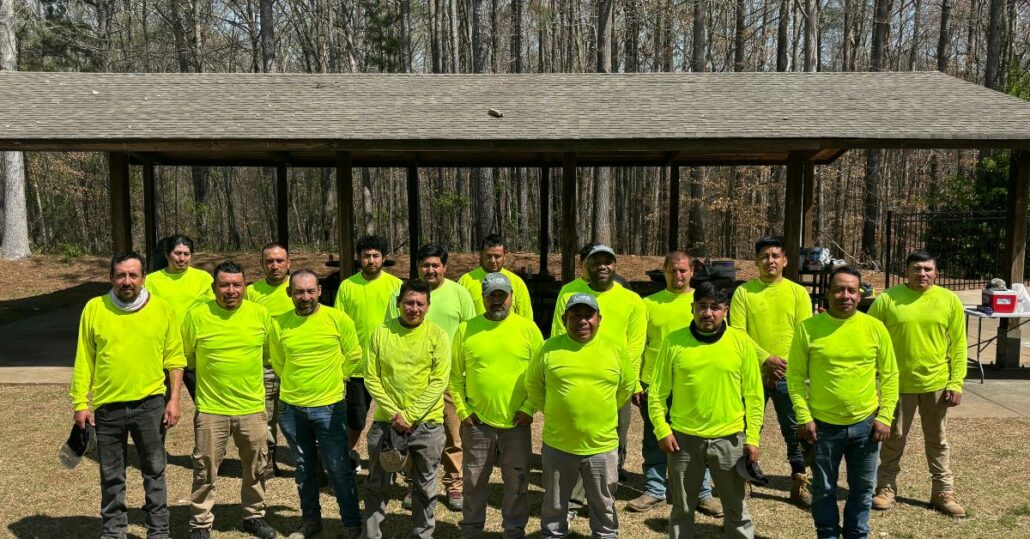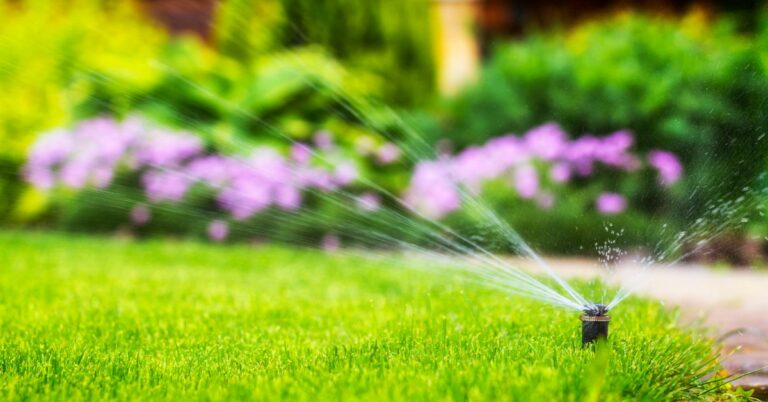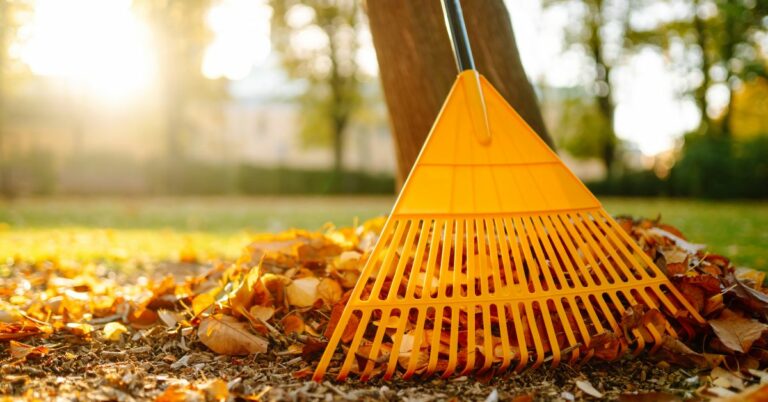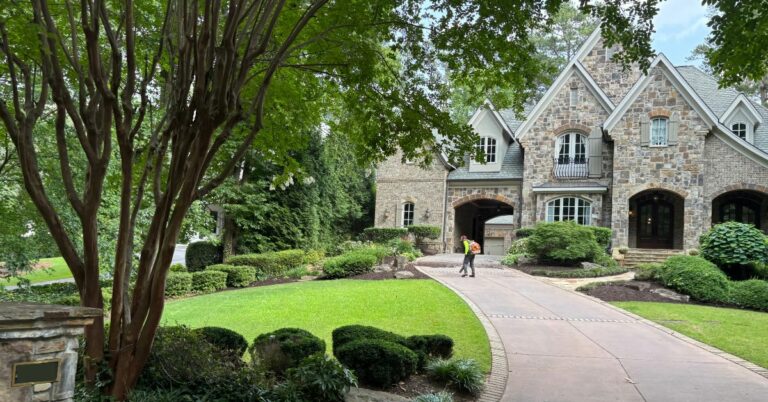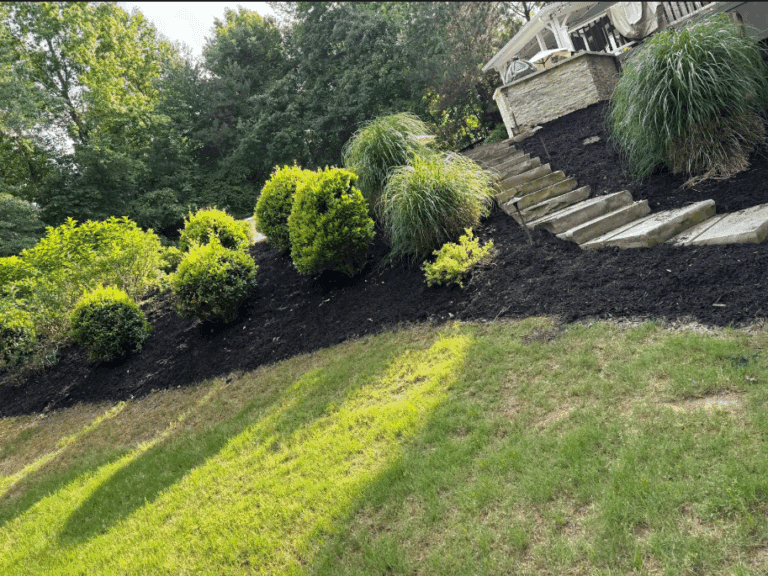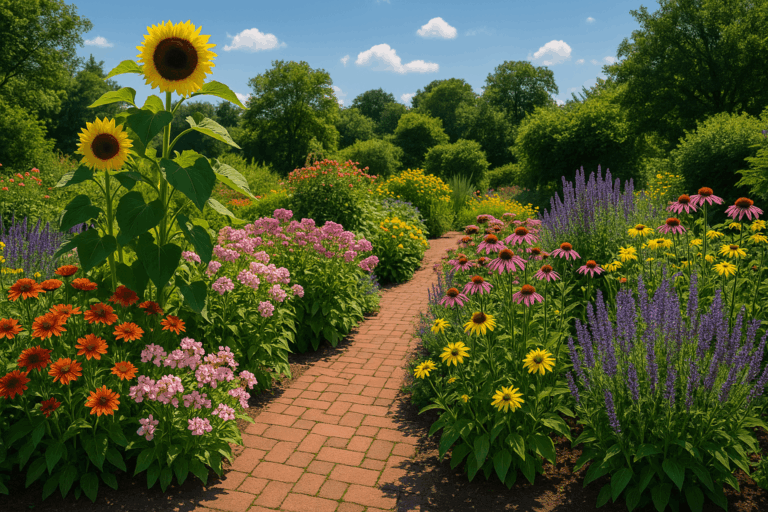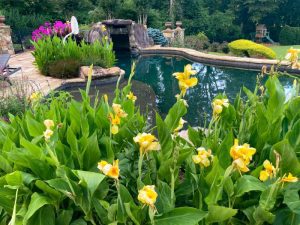Every fall, Alpharetta lawns disappear under a colorful carpet of leaves, and the big question returns: rake them all up or run the mower and mulch? If you’ve searched for mulch solutions in Alpharetta, you’ve likely heard that mulching turns those leaves into free, soil-building fertilizer. That’s true, most healthy lawns benefit from shredding leaves into small pieces that decompose and feed the turf. But there are times when removal is the smarter move, like after heavy storms, when leaves are soggy or diseased, or if your grass is thin or newly seeded.
In this guide, we’ll compare leaf control and removal and mulching solutions step by step, explain how each affects soil health, time, and cost, and show where a hybrid approach makes the most sense. By the end, you’ll know exactly when to mulch, when to remove, and how Creech Landscape can tailor a plan that keeps your lawn healthy, tidy, and HOA-ready all season long.
What “Mulching Leaves” Means (and How It Works)
Mulching leaves means shredding fallen leaves with a mower so the small pieces filter into the grass and break down, returning nutrients to the soil. Instead of raking and bagging, a mulching mower chops leaves into dime-sized bits that sift into the turf canopy, where microbes and earthworms convert them into organic matter.
Over time, this natural recycling improves soil structure, boosts water retention, and makes nutrients more available to grass roots. For many Alpharetta lawns with steady, moderate leaf drop, mulching is the fastest, most sustainable way to manage fall leaves. For deeper support, consider services like mulch installation in Alpharetta, lawn maintenance, or mowing services.
When Leaf Removal Is the Better Choice
Mulching isn’t a one-size-fits-all solution. There are scenarios where removal protects turf health and keeps your yard looking sharp. If a single storm dumps dense layers of leaves, they can form a light-blocking mat and turf then struggles to photosynthesize, thinning out before winter. Wet leaves clump and resist shredding; pushing a mower through them can leave messy windrows and cause ruts in soft soil. Newly seeded or sparse lawns are especially vulnerable to smothering, so removal prevents setbacks during establishment.
Diseased leaves are another red flag. If you’ve battled fungal issues in trees, such as leaf spot or anthracnose, it’s smarter to remove and dispose of infected foliage rather than cycling pathogens back into the lawn. Creech Landscape technicians can identify disease and set the right plan, mulch healthy leaves, remove infected ones, and time treatments alongside fertilization and weed control.
Removal doesn’t have to mean landfill. Alpharetta and the North Metro area often offer seasonal yard-waste pickup; bag leaves in approved paper bags or bins for municipal compost. On properties with planting beds, intact leaves can be used as a winter blanket over perennials and shrubs, just avoid piling against trunks and stems, and keep leaf mulch off the turf itself. If you’re curious about the cleanest route for your landscape, ask about seasonal cleanups or a yard-waste removal service that includes debris recycling.
Benefits of Mulch for Your Lawn
- Improves soil structure and supports beneficial microbes that fuel root growth.
- Returns nutrients to turf, reducing reliance on synthetic fertilizers over time.
- Helps retain moisture and buffer soil temperatures through seasonal swings.
- Minimizes erosion on gentle slopes and encourages deeper rooting.
- Saves time and money by reducing raking, bagging, and disposal fees.
Many homeowners choosing mulch Alpharetta services rely on Creech Landscape to integrate mulching into routine mowing, keeping lawns fed, tidy, and curb-appeal ready without the hassle of weekend bagging marathons.
Cost & Time: Mulching vs. Removal in Alpharetta
Mulching is efficient because it turns a cleanup task into part of regular mowing. With the mulch plug closed and blades sharp, two to three light passes will usually process a typical weekly leaf drop, and you avoid bag purchases, loading, hauling, and dump fees, plus the hidden time cost of transporting yard waste. Removal costs rise with volume. Heavy fall peaks, mature canopy trees, and post-storm piles can push beyond the point of easy mulching; in those weeks, switching to removal reduces turf stress and keeps the property presentation-ready for HOA standards and holiday guests.
Leaf drop around Alpharetta typically runs late October through December, with some varieties holding into January. The smart move is to schedule multiple light services during peak weeks, don’t wait for a knee-deep layer. After rain, leaves compact and get slippery, so it’s often best to remove the first wave and then mulch subsequent lighter drops. Creech Landscape can time visits around storms and temperature swings to maximize results and minimize wear on turf.
When to Combine Both: A Hybrid Strategy
A blended plan often delivers the best results across an entire property. In open sunny areas, mulch weekly drops to feed the soil and reduce waste; in shaded corners where leaves drift and pack down, remove heavy layers so grass can breathe. Late in the season, a final cleanup sets the lawn up for winter with a clean canopy, while planting beds can receive a tidy layer of leaf or bark mulch for protection.
Creech Landscape’s crews routinely tailor this hybrid method, first removing dense accumulations along fences and beds, then mulching the remaining scatter across open turf, to keep operations efficient, your lawn healthy, and the property neat without over- or under-doing any single tactic.
Learn more about our Lawn Aeration Service.
Environmental Impact: Waste Reduction & Soil Health
Mulching turns a “waste problem” into a resource. Every bag you don’t send to the curb is less volume in municipal trucks and less pressure on compost facilities or landfills. On the lawn itself, those mulched leaves increase organic matter, a backbone of resilient soil that better holds water, buffers pH, and stores nutrients. Healthier soil means your grass can handle heat, foot traffic, and intermittent drought with fewer inputs.
In landscape beds, intact, not shredded leaves can act as a seasonal blanket that moderates temperature and suppresses weeds. Keep mulch pulled a few inches back from plant crowns and tree trunks to prevent moisture-related issues. If you prefer a uniform look, top with a thin layer of decorative bark after the leaf layer settles, and link to mulch delivery/installation or landscape beds and planting for a professional finish.
FAQs
Is it better to mulch leaves or bag them?
For most healthy, regularly maintained lawns, mulching is best because it recycles nutrients, saves time, and improves soil. Bag leaves only when they’re too thick, wet, or diseased.
Can mulching leaves cause thatch or damage grass?
Properly shredded leaves do not create thatch; they decompose into organic matter. Thatch forms from undecomposed stems and roots, not from small leaf particles.
How many leaves can I safely mulch at once?
Use the “grass tips visible” rule: after a pass, you should still see grass blades. If shredded leaves form a visible layer, make another light pass or switch to removal in the densest spots.
Should I mulch leaves if my lawn is wet?
Avoid mulching soggy leaves because they clump, smear, and can stress the turf. Let them dry, then mulch in light passes, or remove the heavy layer first.
When should I remove leaves instead of mulching?
Remove when leaves are matted and deep, when disease is present, or when the lawn is thin or newly seeded. Switch back to mulching as conditions allow.
Is mulching leaves good for soil health and microbes?
Yes. Mulched leaves feed beneficial microbes, raise organic matter, and can gradually reduce fertilizer needs.
How often should I mulch leaves during peak fall in Alpharetta?
Weekly, or even bi-weekly during heavy drops works well. Multiple light passes beat a single heavy cleanup.
Can I use mulched leaves in flower beds or gardens?
Use intact leaves as a bed cover and keep a few inches away from stems. If you prefer a neat finish, add a thin bark layer over the leaf blanket.
Your Best Next Step for Fall Lawn Care
For most Alpharetta lawns, mulching leaves is the faster, greener way to nourish soil and keep turf vigorous, and you can pivot to removal when layers get thick, soggy, or diseased. A simple hybrid plan protects new or thin areas, maintains curb appeal for HOA standards, and reduces your overall yard-waste footprint.
Ready to streamline fall lawn care?
Get a customized mulch-and-cleanup program for your Alpharetta property with Creech Landscape. Request an on-site assessment, and we’ll tailor timing, methods, and maintenance so your lawn looks great now, and comes back even stronger in spring.
